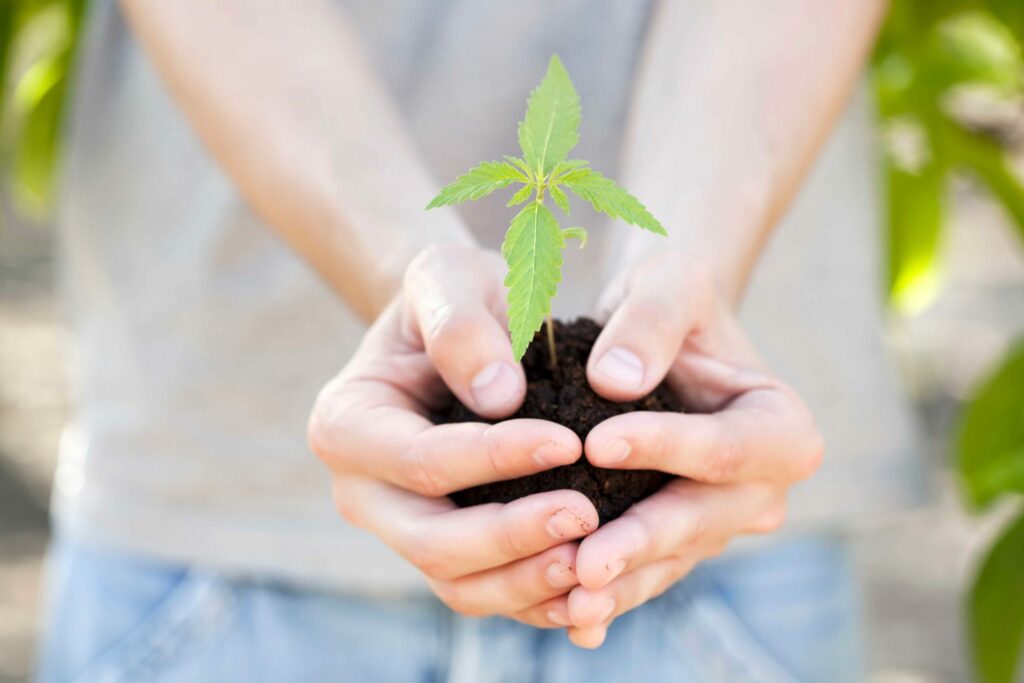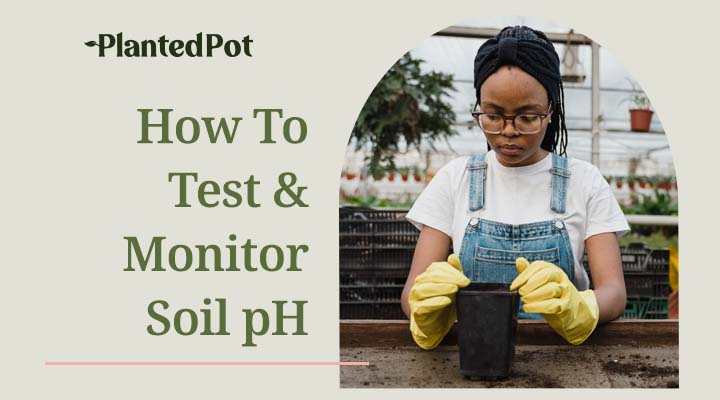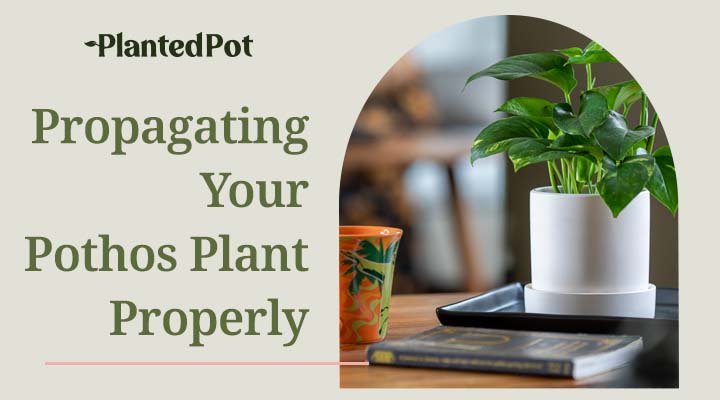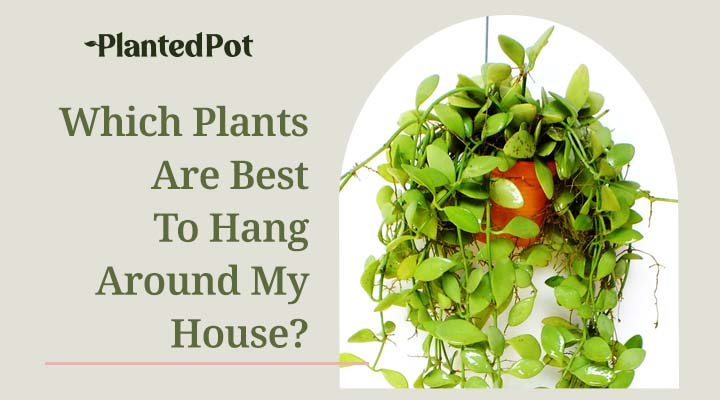
Distilled Water for Plants [Benefits & How It Affects Growth]
Home / Distilled Water for Plants [Benefits & How It Affects Growth]
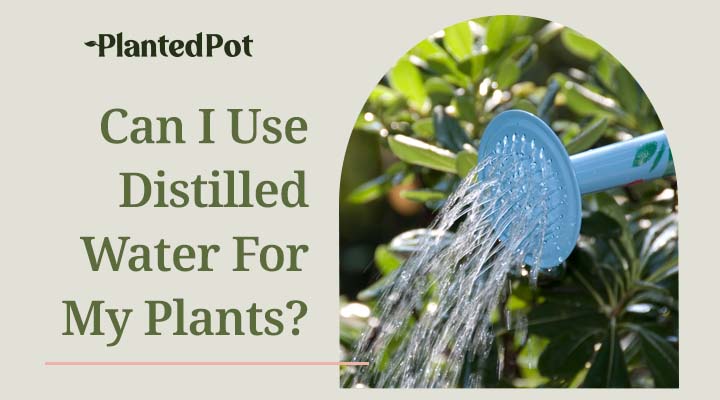
Distilled Water for Plants [Benefits & How It Affects Growth]
Distilled water is just fancy water, right? Whether it comes from the hose outside or the faucet in your bathroom sink, water is just water! Or is it? I’m sure you’ve tried the water from the faucet, and I know that you know that it has a very distinct taste. More times than none, it doesn’t taste very good. For this reason, we know that not all water is created equally. So what is distilled water? And is it good to use distilled water for plants?
Distilled water is a type of purified water achieved by boiling the water and condensing the vapor. Sounds like this could benefit plants greatly! Interested? Keep reading to find out more about what distilled water can do for your plants!
What is Distilled Water?
As mentioned above, distilled water is a type of purified water made by boiling water and condensing the vapor. Distilled water is basically dead water. Yeah, that’s right. This means everything has been removed through boiling.
The pure water becomes steam, and there you have it! Distilled water! This means the contaminants in the water like chemicals, heavy metals, and healthy minerals are removed. Trace amounts of contaminants can still be found, especially if the water comes from sources like a farm’s runoff. Distilled water is used in a variety of ways! Here are a few of its uses that we probably didn’t even think about.
- Medical Field: Because distilled water is so pure, it is often used in the medical field. Hospitals use this water to prepare food for their patients and sterilize tools and materials.
- Vet: Veterinarians often use distilled water for intravenous injections. These injections are commonly given to reduce fevers in our pets and to keep them hydrated.
- Automotives: The lead batteries that we rely on in our cars and trucks rely on water. If the water used for these procedures isn’t pure, the battery can slowly deteriorate.
- Cosmetics: Cosmetic companies also use distilled water because of its purity. Skincare and makeup products must contain the cleanest ingredients in them for the safety of their consumers.
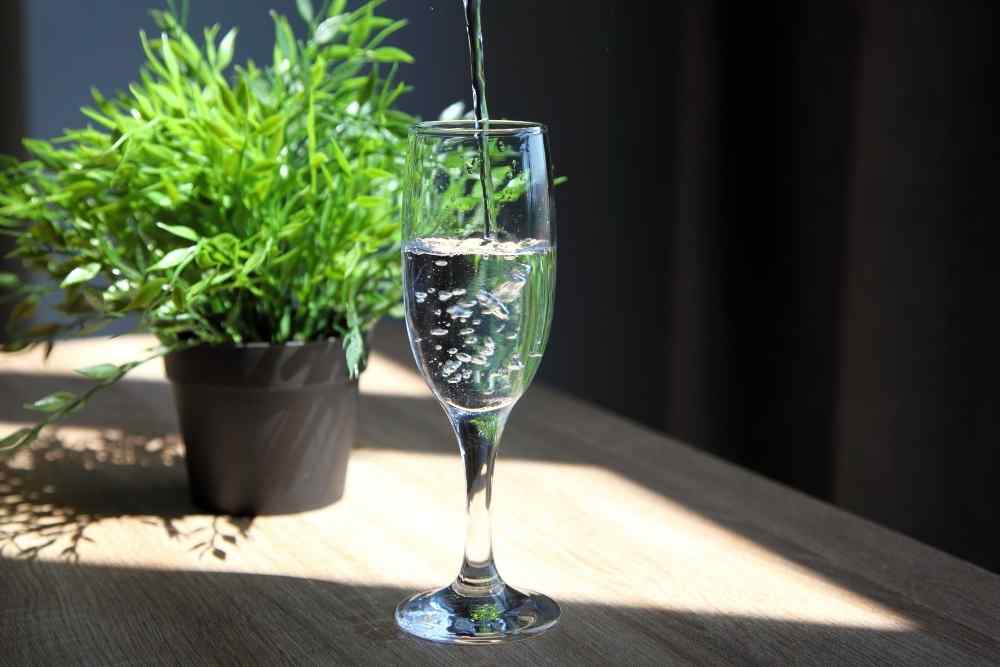
How Does Distilled Water Differ From Other Types of Water?
There are many different types of water. There’s distilled water, alkaline water, tap water, and probably a ton of other different types of water that we can’t pronounce! I mean, have you tried saying “alkaline?” Doesn’t exactly roll off the tongue, does it?
With these many types of water, you’d figure there would have to be major differences. Otherwise, we’d all find ourselves drinking tap and hose water like it were normal. Wait, you drink tap water? Well then, moving on! Distilled water, as mentioned before, has had all its impurities taken from it. This means that even the good minerals are no longer intact, this affects indoor and outdoor plants differently.
Here is a list of different types of water:
- Purified Water: This type of water is technically distilled water with an added step. But the water has nothing in it besides two hydrogen atoms and one oxygen atom.
- Tap Water: One of the many controversial topics has been whether tap water is safe to drink. While we are not talking about drinking this ourselves, it is best to know that tap water may contain harmful elements/contaminants and heavy metals like aluminum, arsenic, copper, iron, lead, pesticides, herbicides, uranium, and more.
- Alkaline Water: You can say that alkaline water is manufactured. It has high pH levels than regular drinking water. Drinking water usually has a neutral pH of 7, while alkaline water has a pH of 8 or 9.
Why Should I Use Distilled Water For Plants?
Just because you are working with distilled water doesn’t mean that your plants are going to thrive! Considering a few factors like pH levels and nutrient deficiency are important! Both indoor and outdoor plants require special care and living conditions for them to be able to grow strong and steadily! Most plants can survive tap water, but as mentioned previously, there are many chemicals in tap water that may be harmful to your plants in the long run.
While distilled water won’t harm your outdoor plants, you’ll notice that they won’t grow as quickly or as tall as other plants watered with rain water or bottled spring water. Spring water contains minerals that are essential for the growth of your plants. Distilled water will sustain your plants but won’t add any nutrients to help them thrive.
While distilled water on its own doesn’t work wonders, adding plant nutrition sticks, powders, or liquids to your distilled water can help your plant’s overall health! They’ll be able to absorb the hydration they need without having to filter out anything extra.
What Effect Does Distilled Water Have On Plants?
Distilled water does allow indoor plants to grow quicker and stronger. Watering plants doesn’t need to be complicated. In fact, it’s one of the easiest parts of caring for your green friends! Your houseplants will be the ones who benefit the most from distilled water.
A National Student Research Center study experimented with plants watered with tap, salt, and distilled water. The plants watered with distilled water had better growth and more leaves. Outdoor plants use the soil to filter excess minerals or contaminants. The plants in containers are the ones you would need to keep an eye on. The container may trap bad toxins, which can build up to unhealthy levels.
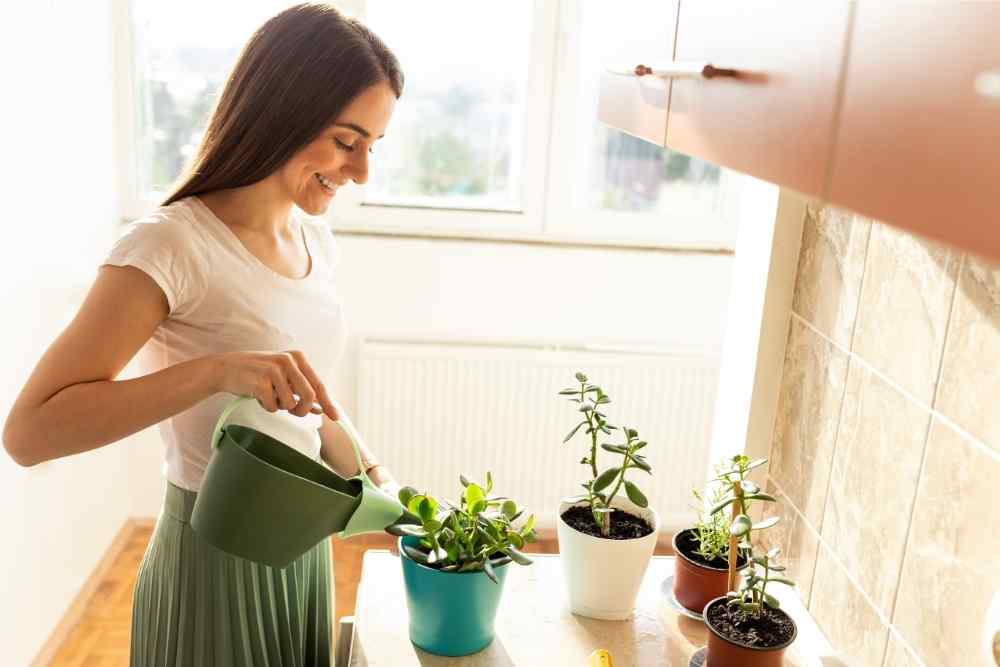
Can Distilled Water for Plants Impact Growth?
As mentioned above, the plants that would benefit the most from distilled water are indoor plants. Indoor plants are normally in containers, and watering them with tap water may make it hard for their soil to get rid of toxins and chemicals. This is what happens when you water outdoor plants. The soil around them helps to diminish the number of harmful toxins that may impair growth.
Distilled water has been proven to help plants grow quicker and stronger! Although this water can be good for plants, it no longer contains minerals that help the plant grow and thrive. It is recommended that distilled water be coupled with other nutrients that you could purchase. Purchasing mineral or plant food sticks could help in the maintenance and growth of your plant!
Can I Make Distilled Water For My Plants At Home?
Yes! Making your own distilled water at home is simple. There’s no need to hop on Amazon to search for a fancy water distiller. All you need is tap water and a pot to heat it in. The gist here is that you heat water, turn it into a vapor, then collect the condensation. You will likely find everything you need in your kitchen! A large pot, a lid, a small pot, water, ice, and possibly oven mitts! We’re trying to be safe here!
Here are the steps in making your own distilled water. Think of this as your take-home science fair project! Don’t worry, we won’t grade you on it.
- First, place the large pot over the burner and add 8 cups of water. Then, place the smaller pot inside the large pot. The most important thing is ensuring airflow inside the large pot. Make sure the smaller pot has plenty of it! Both around its sides and between it.
- Once you have all your equipment set up, turn your burner anywhere from medium and medium-high heat. Try to avoid boiling the water and instead keep it at a steady simmer.
- Once the burner is on, place the lid upside down on the large pot. Flipping the lid allows condensed distilled water to trickle down into the smaller pot. Once this is done, load the top of the inverted lid with ice. The temperature difference will speed up the condensation process.
- Now we wait! You can replace the ice at the one-hour mark and then 45 minutes after that! This is what the oven mitts are for. That lid is going to be hot! Careful!
- Any water that has dripped down to the smaller pot is now distilled! If you made it this far, you have likely screwed it all up. Kidding! We told you we wouldn’t grade you on it!
Is Distilled Water Better Than Tap Water For My Plants?
This is neither a yes or no answer. We mentioned previously that distilled water is more beneficial for indoor plants because they live in smaller containers that can trap minerals. Outdoor plants have soil around them to protect them from harmful toxins and minerals found in tap water. Distilled water is great and will help your plant grow quicker and stronger. Although, you will find that many plants fare well with tap water.
What Type of Water is Best for Plants?
Generally speaking, rain water and bottled spring water are the best types of water for your plants. Rain water is naturally “soft” and can help flush out minerals out of the soil of your houseplant’s container. Rain water can also clear out the stomata or respiratory pores on your plant’s leaves. This improves its ability to take in carbon dioxide and nutrients for photosynthesis.
Many things affect plant growth, including soil, lighting needs, and water! I know we are never taught in elementary school about what type of water is best for plants. All we know is that plants need sunlight, soil, and water to grow! We got that. But for optimal growth and giving our green friends the best quality of life possible, it may take a bit more research. Don’t worry. We researched for you! That’s why you’re here, aren’t you?
Final Thoughts – Distilled Water For Plants
Distilled water is beneficial for your indoor plants because they are usually in small containers and cannot rid themselves of harmful minerals and nutrients. While distilled water will not harm your outdoor plants, it will not necessarily provide them with many benefits. We recommend natural spring water and rain water for best results! These two types of water contain all essential nutrients and minerals to help your plant thrive. Good job, you made it this far. We lied. This is definitely a graded project. A+ for effort!
